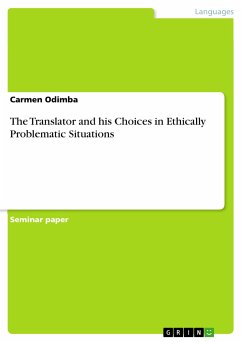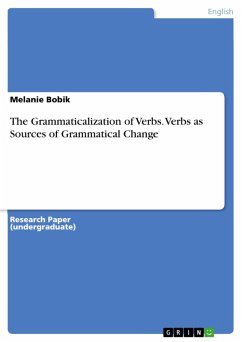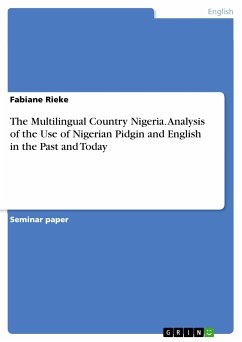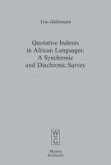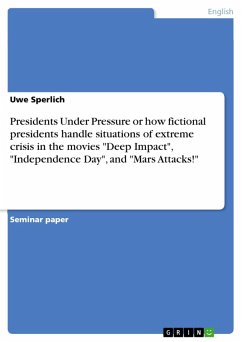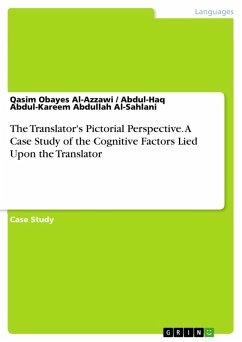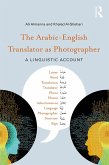Seminar paper from the year 2010 in the subject Interpreting / Translating , grade: 2,0, Johannes Gutenberg University Mainz, course: Seminar "The Ethics of Translation in Postmodernity", language: English, abstract: Postmodernity is a confusing term which has been extensively discussed over the last years. There is no standard definition of it but the three intertwined senses of the word 'postmodern' provide some clarity about the matter. Postmodernity is an era, it also incorporates postmodern philosophies attempting to grasp the peculiarities of that era and eventually corresponds to postmodernism, which includes expressions of the first two in the aesthetic realm. There is no postmodern school or single postmodern theory. The concept has received contributions from a pleiad of writers. Although it has first been broug regrouping term to name writers such as Foucault, Derrida, Lacan, Kristeva, Irigaray, Cixous, Spivak, and de Man (Koskinen 2000). In this paper, I will adopt the latter view. I will also use the word 'postmodernity' as a synonym for our contemporary post-World War II era. Since the beginning of postmodernity, translation's ideals have changed. The dream of a one hundred percent perfect translation has almost disappeared. The source text has lost a lot of its importance to now have barely as much price as the translator's work technique. The translator is in most cases no more expected to be invisible but now has a claim to visibility. It did exist before and always has but was systematically denied for the sake of traditional ethics. The traditional translation ethics have also been reinvented. There has been a massive rejection of old principles and universal ethics. The translator has nowadays a larger wiggle room. Even an unusual translation can be considered as a masterpiece as far the translator remains consistent with his personal ethics and is able to justify them. In this paper I will portray the translator in three kinds of ethically problematic situations - asymmetric power relations, confidentiality and rudeness - in order to define his position and possible choices. After this reflection, I will eventually formulate my personal translator's code of ethics.
Dieser Download kann aus rechtlichen Gründen nur mit Rechnungsadresse in A, B, BG, CY, CZ, D, DK, EW, E, FIN, F, GR, HR, H, IRL, I, LT, L, LR, M, NL, PL, P, R, S, SLO, SK ausgeliefert werden.

